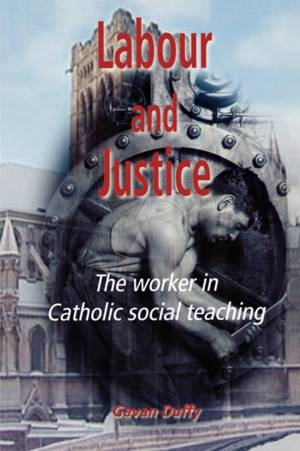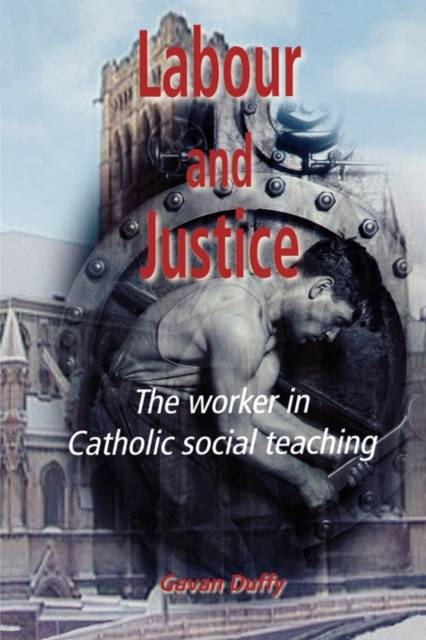
- Retrait gratuit dans votre magasin Club
- 7.000.000 titres dans notre catalogue
- Payer en toute sécurité
- Toujours un magasin près de chez vous
- Retrait gratuit dans votre magasin Club
- 7.000.000 titres dans notre catalogue
- Payer en toute sécurité
- Toujours un magasin près de chez vous
40,95 €
+ 81 points
Description
Gavan Duffy's book is a first of its kind. It deals specifically with the development of Catholic Social Thought in its application to the rights and duties of labour. Beginning with sacred Scripture, it discusses those passages of both the Old and New testaments, which evidence biblical teaching in respect of what we would today call " the worker". The biblical attitude to the worker can be condensed to two words, "justice and fairness". The book discusses the institution of slavery in the ancient world, and shows how the advent of Christianity and its tenets, had the effect of ameliorating the condition of slaves throughout the Roman Empire. Labour and Justice then traces the evolution of slavery to serfdom during the early medieval period and the development of the "guild system" in which the Church was a major participant. The book discusses the decline of the guilds following the Reformation, the advent of the Industrial Revolution, the rise of the Proletarian class, and consequent division of society into Capitalist and Proletarian classes. The book discusses how Leo XIII's Rerum Novarum, promulgated in 1891, was in many ways the Church's answer to The Communist Manifesto of Marx and Engels published in 1848. Beginning with Leo XIII, often called the 'workers' pope', the Church has built a body of teaching on labour and capital through the encyclicals and statements of successive popes, up to the present time. This body of teaching has been augmented by Gaudium et Spes, one of the documents of Vatican II, by Vatican submissions to international forums, and by the declarations of episcopal conferences. Gavan Duffy discusses the application and interpretation of the encyclicals Rerum Novarum and Quadragesimo Anno by those notable men of letters, Hilaire Belloc and Gilbert Keith Chesterton, whose writings have had a profound influence on Catholic social thought since the late 1920s. In the later chapters of the book, the author examines at length, the antinomy between Catholic social thought in its application to the employee, and many of the practices of what he terms 'Neo liberal capitalism', or, in its global application, the philosophy of 'Globalism'. He argues that the ascendancy of the neo-liberal philosophy has resulted in a regression of employee rights, as many of the 19th century attitudes to labour re appear. He says that once again, labour is increasingly regarded by capital and government, as merely one more factor in the processes of production. This, he argues, is contrary to Church teaching. Gavan Duffy raises the question as to whether the modern corporation, has departed from the model so ardently supported by Adam Smith, and raises the need for greater accountability by corporations to "the people," who originally conceded the benefits which corporations take for granted. The book examines work structures in which the employees are recognised as partners in the enterprise. It also looks at cooperative structures, such as those in the Mondragon region of the Basque country in Spain, as alternatives to traditional work structures. Labour and Justice: The worker in Catholic Social Teaching is a valuable addition to the literature on the social teaching of the Church - George Cardinal Pell, Archbishop of Sydney Gavan Duffy was born in India in 1946 emigrated to Australia in 1951 with his parents. He became involved in Catholic Action when a student of eighteen years of age, and has maintained that involvement for the greater part of his life. He was admitted to the Bar in 1974. His previous book, Demons and Democrats (2003), is a study aof the events leading up to the split in the Australian Labour Party of the 1950s.
Spécifications
Parties prenantes
- Auteur(s) :
- Editeur:
Contenu
- Nombre de pages :
- 306
- Langue:
- Anglais
Caractéristiques
- EAN:
- 9780852446867
- Date de parution :
- 01-01-08
- Format:
- Livre broché
- Format numérique:
- Trade paperback (VS)
- Dimensions :
- 156 mm x 234 mm
- Poids :
- 430 g







